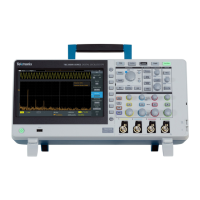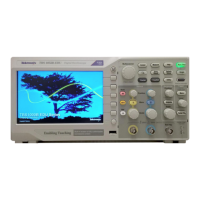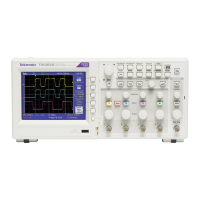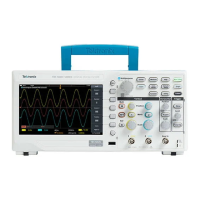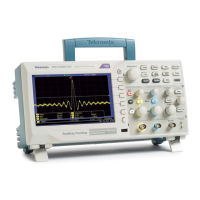DESE
Sets or queries the bits in the Device Event Status Enable Register (DESER). The
DESER is the mask that determines whether events are reported to the Standard
Event Status Register (SESR), and entered into the Event Queue. For a detailed
discussion of the use of these registers, see Registers.
Group
Status and Error
Syntax
DESE <NR1>
DESE?
Related Commands
*CLS on page 75, *ESE on page 106, *ESR? on page 107, EVENT? on
page 115, EVMsg? on page 116, *SRE on page 219, *STB? on page 220
Arguments
<NR1> is an integer value in the range from 0 to 255. The binary bits of DESER
are set according to this value. For example, DESE 209 sets the DESER to the
binary value 11010001 (that is, the most significant bit in the register is set to 1,
the next most significant bit to 1, the next bit to 0, and so on).
The power-on default for DESER is all bits set to 1 if *PSC is 1. If *PSC is 0, the
DESER maintains its value through a power cycle.
NOTE. Setting DESER and ESER to the same value allows only those codes to be
entered into the Event Queue and summarized on the ESB bit (bit 5) of the Status
Byte Register. Use the *ESE command to set ESER. For more information on
event handling, refer to the Status and Events section.
Examples
DESE209 sets the DESER to binary 11010001, which enables the PON, URQ,
EXE, and OPC bits.
DESE? might return the following string :DESE 186 , showing that DESER
contains the binary value 10111010.
D commands
96 TBS2000 Series Programmer
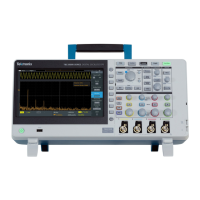
